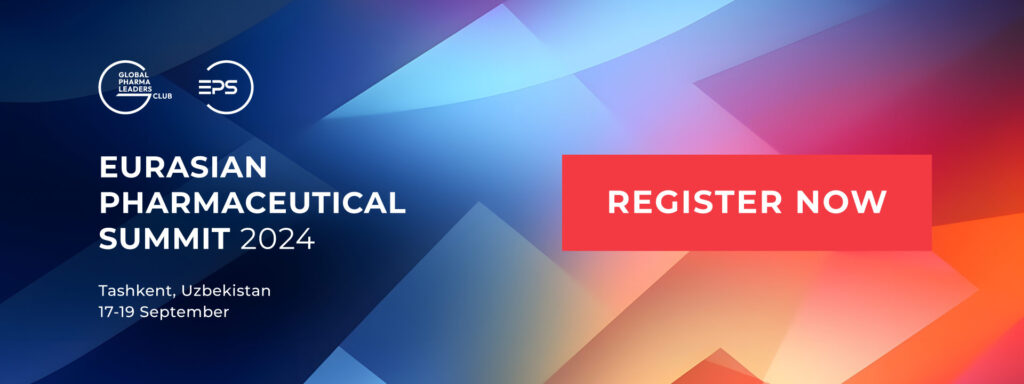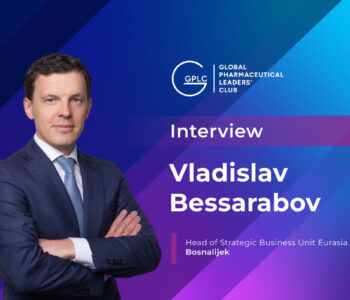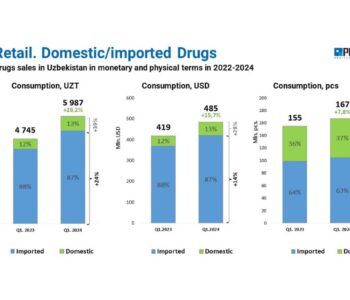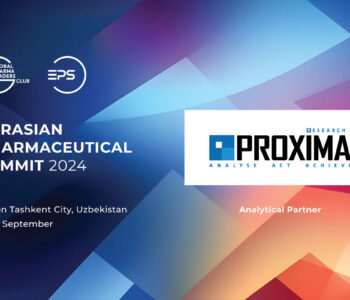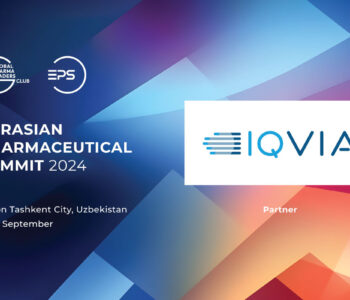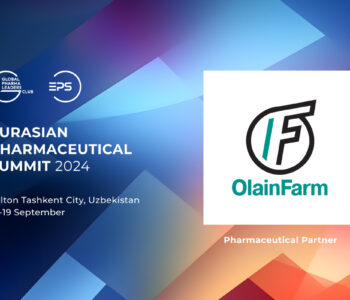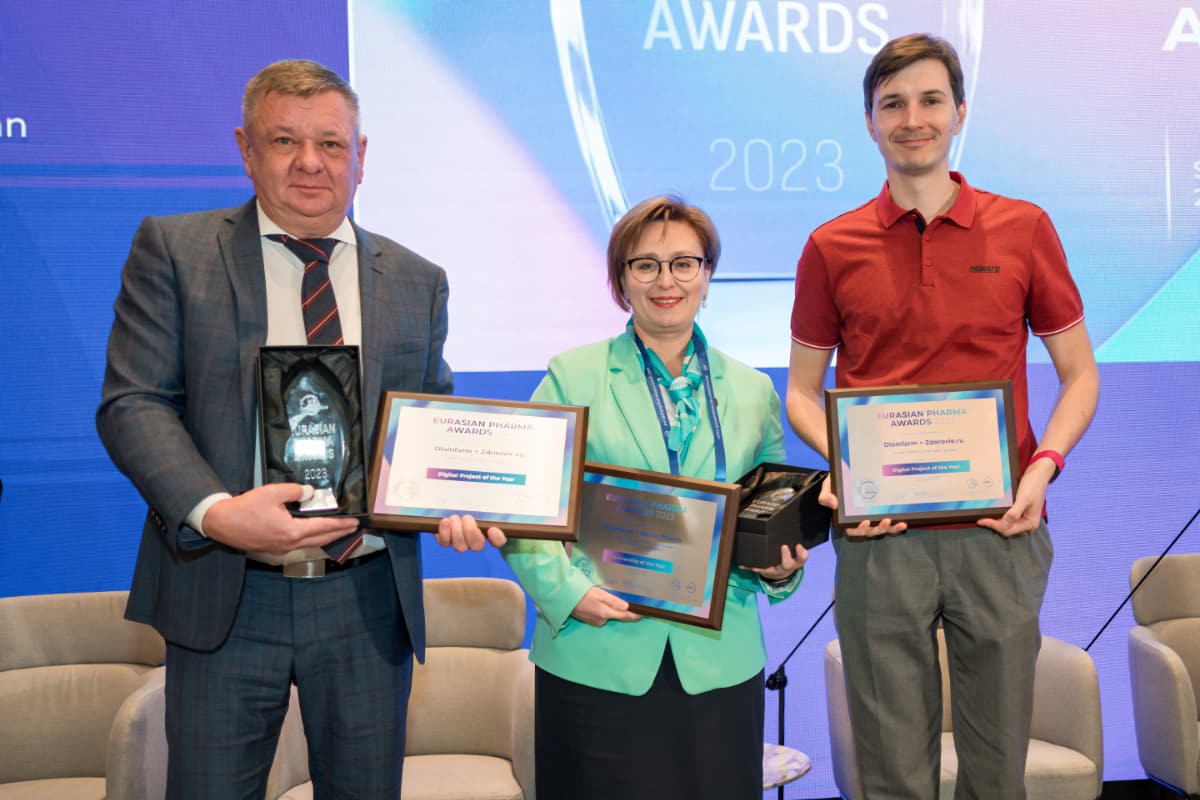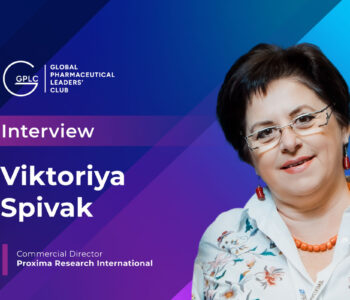
Viktoriya Spivak: “In Kazakhstan and Uzbekistan, our competitive edge…
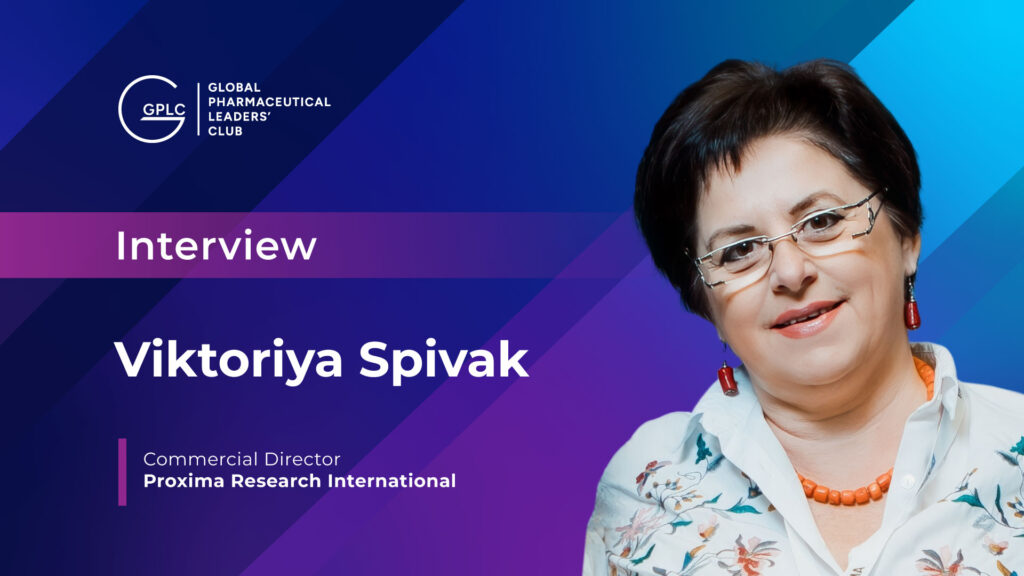
In the lead-up to the Eurasian Pharmaceutical Summit, set for September 17-19 in a hybrid format with an offline part in Tashkent, Natalia Baeva, Director of the Global Pharmaceutical Leaders’ Club, met with Viktoriya Spivak, Commercial Director of Proxima Research International.
Proxima Research is the Analytical Partner of 2024 summit. In the interview, Viktoriya discussed global and Eurasian pharmaceutical market trends, approaches to data collection and analysis in Kazakhstan and Uzbekistan, and Proxima’s plans for geographic expansion and product portfolio growth.
For over 25 years, Proxima Research has been a key supplier of technological innovations, analytical data, and services to pharmaceutical companies. Their products are available in more than 50 countries, with offices in Kazakhstan, Uzbekistan, Ukraine, the USA (Florida) and Europe (Bratislava).
Natalia Baeva, Director of the Global Pharmaceutical Leaders’ Club: What trends does Proxima Research observe in global pharmaceutical markets, particularly in Europe, Latin America and the Eurasian region?
Viktoriya Spivak, Commercial Director of Proxima Research International: A common challenge across all markets is the increasing difficulty in reaching healthcare professionals due to their growing workloads and access restrictions. Pharmaceutical companies must become more useful to healthcare workers, utilizing available time efficiently and providing valuable support through the right channels at the right time.
Trust in the pharmaceutical industry is eroding worldwide, partly due to the behavior of some companies. To counter this, pharmaceutical companies need to become experts, trusted consultants, offering content based on clinical studies and recommendations that are relevant and easily accessible to healthcare professionals.
As pharmaceutical companies develop at a different speed, expand their product portfolios and introduce complex new medicines, it’s increasingly challenging to be the expert conveying this information. Personalized, omnichannel communication is crucial, and the role of Medical Science Liaisons is growing globally.
The rapid pace of development means that data collected by pharmaceutical companies quickly becomes outdated. Keeping data relevant is a crucial trend.
All business processes, including those in the pharmaceutical industry, now involve artificial intelligence to varying degrees. AI applications in pharma are diverse, including audio and photo content recognition, comparing pharmacy display photos with planograms, and text recognition. It’s becoming common for AI to conduct phone interviews during research, using human-like voices. Multilingual AI is crucial for global corporations to ensure processes are understood by headquarters and supported in local languages.
AI’s role in updating data, segmentation, and audience targeting is significant. Previously, targeting was based on potential and loyalty, but now AI processes vast amounts of data, incorporating behavioral characteristics like social media activity and interests. This enables more accurate audience segmentation and targeting.
Differences across countries in Eurasia stem from varying mentalities, traditions, and socio-cultural, political, economic, regulatory, and social factors. For example, while Medical Science Liaisons are common in Europe and America, they are not yet prevalent in Eurasia. Different KPIs and recruitment approaches exist, and while Eurasia may soon adopt these practices, there are still regulatory and economic factors influencing market trends. Despite some restrictions on visiting doctors in Eurasian countries or pharmacists in some European countries, these challenges encourage finding alternative communication channels.
Natalia Baeva, Director of the Global Pharmaceutical Leaders’ Club: In recent years, experts have flagged market measurement and data analytics as key challenges in the Eurasian markets. Do you see any progress in this area, and what changes are needed to enhance the accuracy of analytical data?
Viktoriya Spivak, Commercial Director of Proxima Research International: Let me highlight what our company offers and why our data is reliable and essential for making business decisions in the pharmaceutical market. In Kazakhstan and Uzbekistan, we conduct comprehensive pharmaceutical market audits and collect tertiary sales data directly from pharmacies – what we call Sell Out data. This data provides an accurate and complete picture of sales and real product consumption, offering a significant competitive advantage, especially in Uzbekistan where we are the sole providers of such data.
In Kazakhstan, we’ve been using this tool since 2018, sourcing data from pharmacy chains and fiscal data operators. Over the past two years, we’ve significantly improved the quality of this data by increasing our direct data sample to cover 70% of all points, with only a small portion extrapolated. We ensure data quality through rigorous statistical processing. Additionally, we’ve enhanced the frequency of updates; we now offer weekly data reports available just eight days after the period ends, compared to monthly reports previously.
For Uzbekistan, we’ve recently launched the only tertiary data product for pharmacy sales, starting in early 2024 with historical data from January 2023. This allows for dynamic period comparisons crucial for business decisions. Currently, we provide monthly data but are working towards more frequent updates.
Another innovation we’ve implemented is delivering analytics through the advanced Power BI platform. This provides standardized data formats, interactive visualization, and seamless integration with PowerPoint, allowing real-time data updates during presentations. This option is available in both Kazakhstan and Uzbekistan.
Natalia Baeva, Director of the Global Pharmaceutical Leaders’ Club: What are Proxima Research’s priorities today in terms of geographical expansion and product portfolio development?
Viktoriya Spivak, Commercial Director of Proxima Research International: Until 2021, we were mainly a regional player in the CIS markets. That year, we decided to internationalize and expand our business. In 2022, we launched operations in the USA. In 2023, we introduced Proxima Cloud CRM, a key product we’re scaling globally. This includes a comprehensive ecosystem with a database and modules to boost employee efficiency worldwide, featuring tools for territory management and more. We’ve refined this product, secured a trademark in the USA, and protected it with copyrights for global sales.
In early 2024, we partnered with Amazon Web Services, offering Proxima Cloud CRM in multiple countries. Now, you can purchase and deploy it via Amazon in just hours. Amazon guarantees our product’s security, technological edge, and compliance with all legal requirements. As we scale, we’re focusing on technological solutions, data analysis, and retail audits. It’s about our plans for Europe, the USA, and Latin America.
For our established markets, our strategy is to enhance data quality, expand services, and improve existing products in Kazakhstan, Uzbekistan, and other Eurasian countries.
